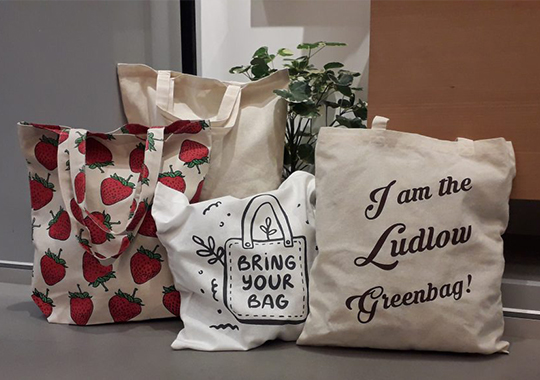In today’s world, as environmental concerns mount, it is more important than ever to make sustainable choices in our everyday lives. One simple way to do this is to switch from single-use plastic bags to reusable hessian bags. Hessian bags are biodegradable, which means microorganisms can break them down over time and do not contribute to plastic pollution. Read on to know how these bags are impacting globally.
What Are Hessian Bags?
Hessian bags are made from a natural fibre derived from the jute plant (Corchorus capsularis and Corchorus olitorius). Jute is a rain-fed crop primarily grown in countries like India and Bangladesh. Here are some key characteristics of hessian bags:
Biodegradable: Hessian bags are biodegradable, which means they break down naturally and do not contribute to long-lasting environmental pollution.
Durable: Despite their biodegradable nature, hessian bags are incredibly durable and can withstand heavy use.
Versatile: These bags come in various shapes and sizes, making them suitable for various applications, from grocery shopping to packaging.
Natural Appearance: Hessian bags have a rustic and natural appearance, giving them a unique aesthetic appeal.
The Sustainable Benefits of Hessian Bags
Reducing Plastic Pollution: By choosing hessian bags over single-use plastic bags, you actively reduce plastic pollution. Plastic bags can take hundreds of years to decompose, whereas hessian bags decompose within a relatively short period.
Carbon Footprint Reduction: The production of hessian bags has a lower carbon footprint than plastic bags, as jute cultivation and processing are less energy-intensive.
Renewable Resource: Jute is a renewable resource, as it can be harvested multiple times within a year. This sustainable cultivation practice ensures a continuous supply of jute fibre.
Support for Local Communities: The jute industry provides employment opportunities to many communities in jute-producing regions, thereby supporting livelihoods.
Sturdy and Reusable: Hessian bags are not only eco-friendly but also practical. They are sturdy, reusable, and can last for years, reducing the need for constant replacement.
Applications of Hessian Bags
Hessian bags have many applications that extend beyond just carrying groceries. Here are some common uses:
Grocery Shopping: Replace plastic bags with hessian bags for your grocery shopping. Many retailers now offer discounts as an incentive for using eco-friendly bags.
Gift Packaging: Hessian bags can be creatively used for gift packaging, adding a rustic and unique touch to your presents.
Garden and Agriculture: These bags are suitable for storing and transporting agricultural produce, seeds, and even as plant covers to protect against harsh weather conditions.
Home Decor: Hessian bags can be repurposed for home decor, such as creating curtains, table runners, or cushion covers.
Promotional Merchandise: Businesses and organisations often use hessian bags as promotional merchandise to promote sustainability and eco-conscious values.
Jute Sacking Bags: An Alternative to Plastic Packaging
In addition to hessian bags, jute sacking bags are another eco-friendly option that can significantly reduce the environmental impact of packaging materials. Jute sacking bags are robust and versatile, making them ideal for various industrial and commercial purposes. Here’s why they are a sustainable choice:
Strength and Durability: Jute sacking bags are known for their strength and durability, making them perfect for packaging heavy goods.
Breathability: Jute’s natural breathability allows products stored in these bags to remain fresh and well-ventilated.
Biodegradability: Just like hessian bags, jute sacking bags are biodegradable and decompose naturally, leaving no harmful residues.
Recyclability: Jute fibres can be recycled and repurposed into various products, reducing waste.
Eco-Friendly Branding: Businesses can use jute sacking bags for packaging to convey their commitment to eco-friendly practices and attract environmentally conscious customers.
Times where environmental concerns are at the forefront of global discussions, choosing sustainable alternatives in our daily lives is crucial. Hessian bags and jute sacking bags offer a practical and eco-friendly solution to reduce plastic pollution and promote responsible consumption. These versatile, biodegradable options not only help protect the environment but also support local communities and provide long-lasting durability for various applications.
By incorporating hessian bags and jute sacking bags for your shopping and packaging needs, you can actively contribute to a greener and more sustainable future. So, make the shift to these eco-friendly options today and be a part of the positive change towards a more sustainable world.


